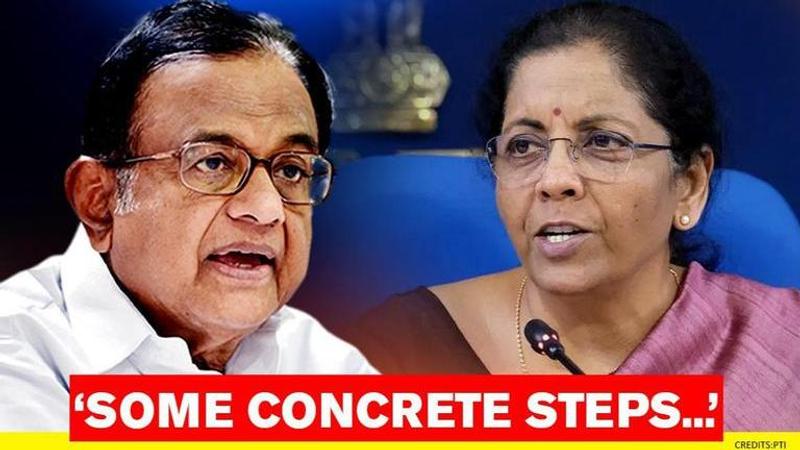Published 15:26 IST, September 6th 2020
Chidambaram pitches measures to boost demand & revive economy, advises Centre to borrow
Amid India's GDP contracting by 23.9%, senior Congress leader and MP P Chidambaram on Sunday suggested measures to stimulate demand and revive the economy.

Amid India's GDP contracting by 23.9%, senior Congress leader P Chidambaram on Sunday suggested measures to stimulate demand and revive the economy. First, he urged the Centre to transfer some cash to the poorest 50% of the families. This has been the Congress Party's consistent demand to boost consumption. While the Union government has already extended the free ration scheme- Pradhan Mantri Garib Kalyan Anna Yojana till November, Chidambaram opined that food grains should be offered to all families irrespective of their economic status.
According to him, the Centre should start massive public works and increase spending on infrastructure projects. He stated that the huge food grain stock could be used to pay wages in kind to the workers. Moreover, he called upon the NDA government to recapitalize banks enabling them to lend more. The Rajya Sabha MP added that the states should be paid their GST compensation dues.
Options to raise money
While acknowledging that his recommendations will require a lot of money, Chidambaram advised the Centre to borrow liberally. For instance, he pointed out that the Fiscal Responsibility and Budget Management norms could be temporarily relaxed. Additionally, he requested the government to accelerate disinvestment. The senior Congress leader contended that money could be raised by borrowing from the International Monetary Fund, World Bank and Asian Development Bank. He mentioned that monetising part of the deficit was another option that the Centre could consider.
Centre offers explanation
All sectors barring agriculture have recorded negative GDP growth during the April-June quarter. India is among the economies worst hit by the COVID-19 pandemic. Elaborating on the state of the economy, the Centre noted that restrictions were imposed on non-essential economic activities and movement of people from March 25 to contain the spread of COVID-19. It maintained that this had an impact on economic activities as well as data collection mechanisms.
Mentioning that the timeline for filing statutory returns had been extended, it revealed that the usual data sources were substituted by limited alternatives like GST and interaction with professional bodies. In this background, the Union government hinted that the GDP estimates are likely to undergo revision in due course. Meanwhile, the GST estimates for the July-September quarter shall be released on November 27.
Updated 15:26 IST, September 6th 2020




